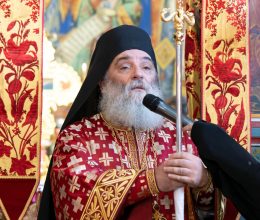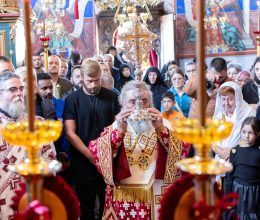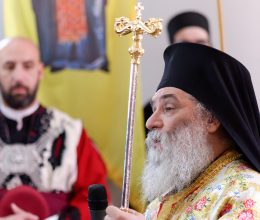A homily by His Grace Bishop Partenij of Antania, given at Divine Liturgy on the Sunday of the Good Samaritan, November 27th in the Year of Our Lord 2022.
In the Name of the Father and of the Son and of the Holy Spirit.
Tomorrow, with God’s help, we begin the blessed podvig of the Nativity Fast, when we prepare ourselves for the radiant feast of the Nativity of Christ. Today’s Gospel reading fits in perfectly with the beginning of the Fast because it tells about something so essential that without it there can be no acceptable fast. More precisely, it tells us about charity, which is the practical application of God’s commandments.
We heard a wonderful parable that our Lord Jesus Christ told to a lawyer. The lawyers were educated scholars and teachers of the Old Testament and were elders of the Jewish people. The Apostle and Evangelist Luke adds an interesting detail, that the lawyer did not actually want to learn anything from the Lord. He was actually probably plotting together with the other lawyers, Pharisees, and elders, as they only wanted to test the Lord to slander him and ridicule Him before the people. “And behold, a certain lawyer stood up and tested Him, saying ‘Teacher, what shall I do to inherit eternal life?’” (Luke 10:25) Undoubtedly, this was a very timely and important question that we should all be asking ourselves often. Naturally, since the Lord is all-knowing, he was well aware that the man’s question was not sincere. Since he knew the man was a lawyer, teacher, and interpreter of the Law, he asked him, “What is written in the law? What is your reading of it?” (Luke 10:26) The man replied by quoting the two greatest commandments, to love God and to love your neighbor. The Lord then answered him, “You have answered rightly, do this and you shall live” (Luke 10:28). As a matter of course, in order to unite with God, Who is eternal life, we must, first of all, love Him with all our being, and then love our neighbor as ourselves. We must show mercy and kindness to all of our fellow human beings. This is how we honor God not just on the altar of His holy temples, but we also serve Him on the altars of the hearts of our neighbors, thus growing into full union with God and theosis.
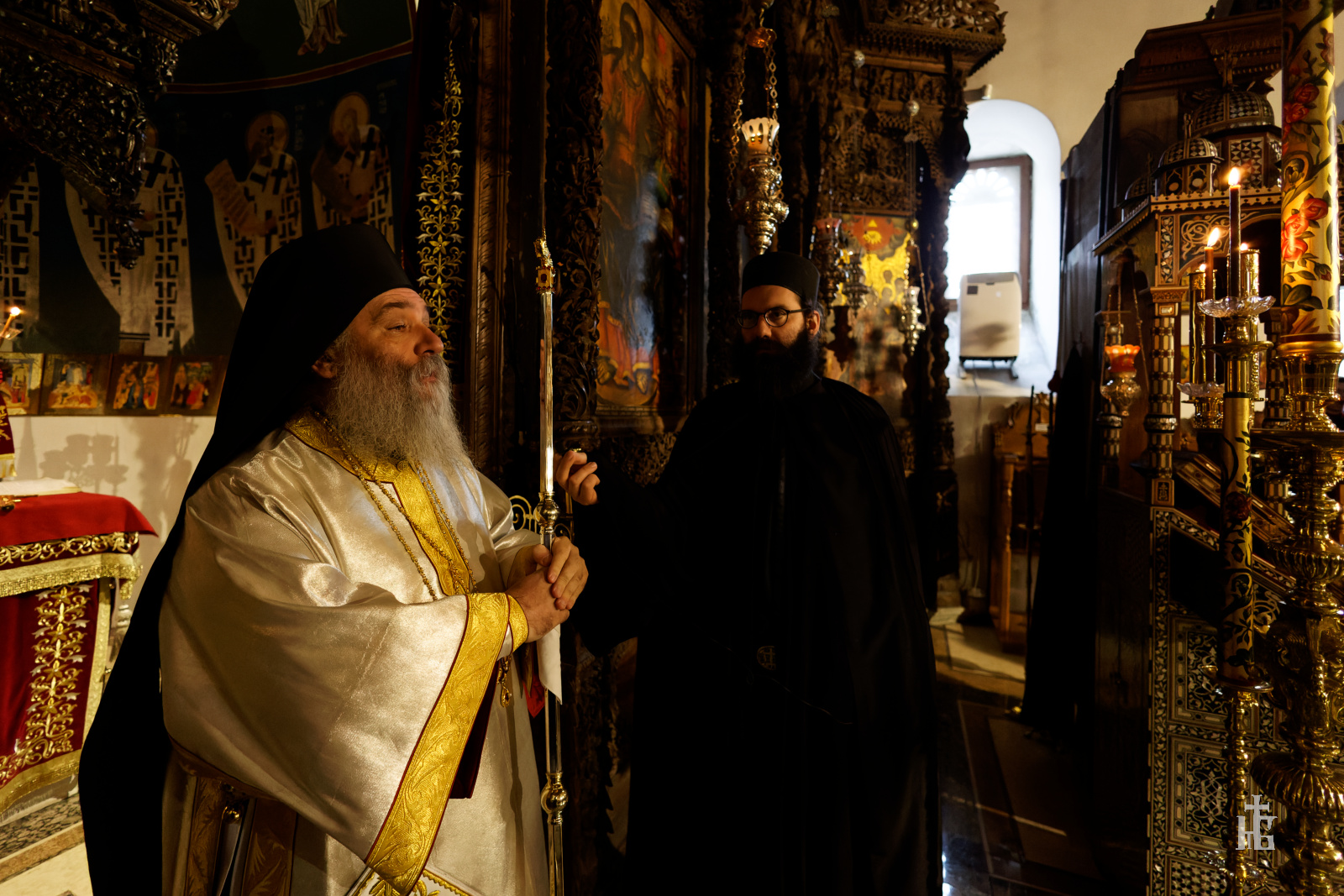
However, the lawyer wanted to justify himself and ridicule Jesus before their listeners, among whom were many people who were not well inclined toward Him. Thus, he tried to trap Him and asked, “And who then is my neighbor?” (Luke 10:29) What he was really asking was, “Which of my neighbors should I do good to? Whom should I love as myself? Shouldn’t it be my relatives, my countrymen, and other Jews? Because aren’t we Jews God’s chosen people, aren’t we His children? And so aren’t all the others outcasts, sinners, impure, a debased race, second-rate people?” This was what many Jews at the time believed, and so they wanted to use the Law to set a trap for Christ. If He answered that everyone is our neighbor, then most likely everyone would have accused Him of not being a good Jew, of being a traitor Who does not love or care for His people, Who is not concerned with the wellbeing of His people and therefore is not concerned with God either. By their logic, He would then deserve to be cast out from the people and even stoned.
Doesn’t this remind you of many so-called “patriots” today, who idolize the nation-state and worship it like an idol, spewing hatred, slander, and insults on social media at anyone who disagrees with their shallow and untenable opinions? Unfortunately, we see many in the Church who put the nation first and above everything else, even above the Lord. This is a grave error, which causes enormous problems and wounds in the Church. At the Holy and Great Council in Constantinople in 1872, the gathered bishops condemned ethnophyletism, or nationalism within the Church, as a heresy. Thus, any nationalistic movements within the Church are completely wrong and even blasphemous. The Church is One, Holy, Catholic, and Apostolic. Its character is universal because we are all children of God and we are all called to salvation. That the one Church is administered in smaller church hierarchies is for pastoral reasons, for the better administrative functioning of the Church. This is why the canons state that each country should have its own church hierarchy, but at the same time, this should not conform to someone’s national or earthly interests. The Church is the Church of all the Orthodox residing in a particular country, not only of a certain people or ethnic group. No nation has can lay an exclusive claim to the Lord. Orthodoxy is universal, for everyone, regardless of which country they live in or which ethnic group they belong to.
For these and other reasons, the Lord told the lawyer the story of the Good Samaritan. Although this parable is inspired by everyday life at the time and seems to be a rather simple story, it is actually filled with deep theological meaning. He told him this story so that the man would conclude for himself who his neighbor was. As we know from the biblical narrative, at the time the Jews despised the Samaritans. You probably all know the story from the Gospel already. A man was traveling from Jerusalem to Jericho, but on the way, he was attacked by thieves, beaten, robbed, and left for dead on the side of the road. A priest was passing by on the same road and saw the man in distress but passed by without helping him. A Levite did the same. The Levites were also servants in the Old Testament temple. These two men wanted nothing to do with this man who was in real trouble. Then, a member of that despised people, a Samaritan, passed by on the road. He looked at the half-dead man, took pity on him, dismounted from the animal on which he was traveling, and bandaged the man’s wounds, pouring wine and oil on them. Then he put the man on his own animal and took him to an inn, where he gave the innkeeper two denarii and arranged for them to take care of the man. He even told the innkeeper that whatever more he spent on the man past the two denarii he would repay when he returned. At the same time, he made this agreement with the innkeeper in private, and not in front of the wounded man, so as not to embarrass him or make him feel uncomfortable.

In the face of the Good Samaritan, we see Christ the Savior, Who came to save and heal half-dead humanity, which had gone from holiness to sin, from Jerusalem to Jericho. That road is, in fact, man’s journey through history from Adam to Christ. How wretched was the condition of the human race before the coming of the Savior into this world! The peoples of the world were completely lost, confused, with hearts of stone, frightened, and hopeless. On the other hand were the Jews, the chosen people, who had become proud and conceited that they were the only righteous ones, that they were the only ones God loved, and had thus become empty, formalistic, cruel, blind worshipers of the letter and the Law while ignoring its essence. Thus from a spiritual point of view, all the nations were in a miserable, half-dead state. Then behold, the Savior, our Good Samaritan, our Benefactor, comes down the same road to heal the wounds of humanity with His love and mercy. This is exactly what the wine and oil with which the Samaritan nursed the man’s wounds signify. In the same vein, the inn represents the Church of God. All of us have been led here by our Creator to the Divine Inn, to His Church, where our healing is paid for by His Divine and Saving Blood. His grace and mercy are always poured out there. There, He gives Himself to us for eternal life and He understands our weaknesses. He recognizes and heals all our pains, wounds, traumas, worries, and troubles, for each and every one of us, because there is no person without traumas or pain. The Merciful Christ came and became a man Who was equal to us in everything to show us that He understands us in everything. He knows best what suffering is because He suffered the most out of all of us. As the Holy Apostle Paul says: “For indeed He did not give aid to angels, but He does give aid to the seed of Abraham. Therefore, in all things He had to be made like unto His brethren, that He might be a merciful and faithful High Priest in all things pertaining to God, to make propitiation for the sins of the people. For in that He Himself has suffered, being tempted, He is able to aid those being tempted” (Hebrews 2:16-18).
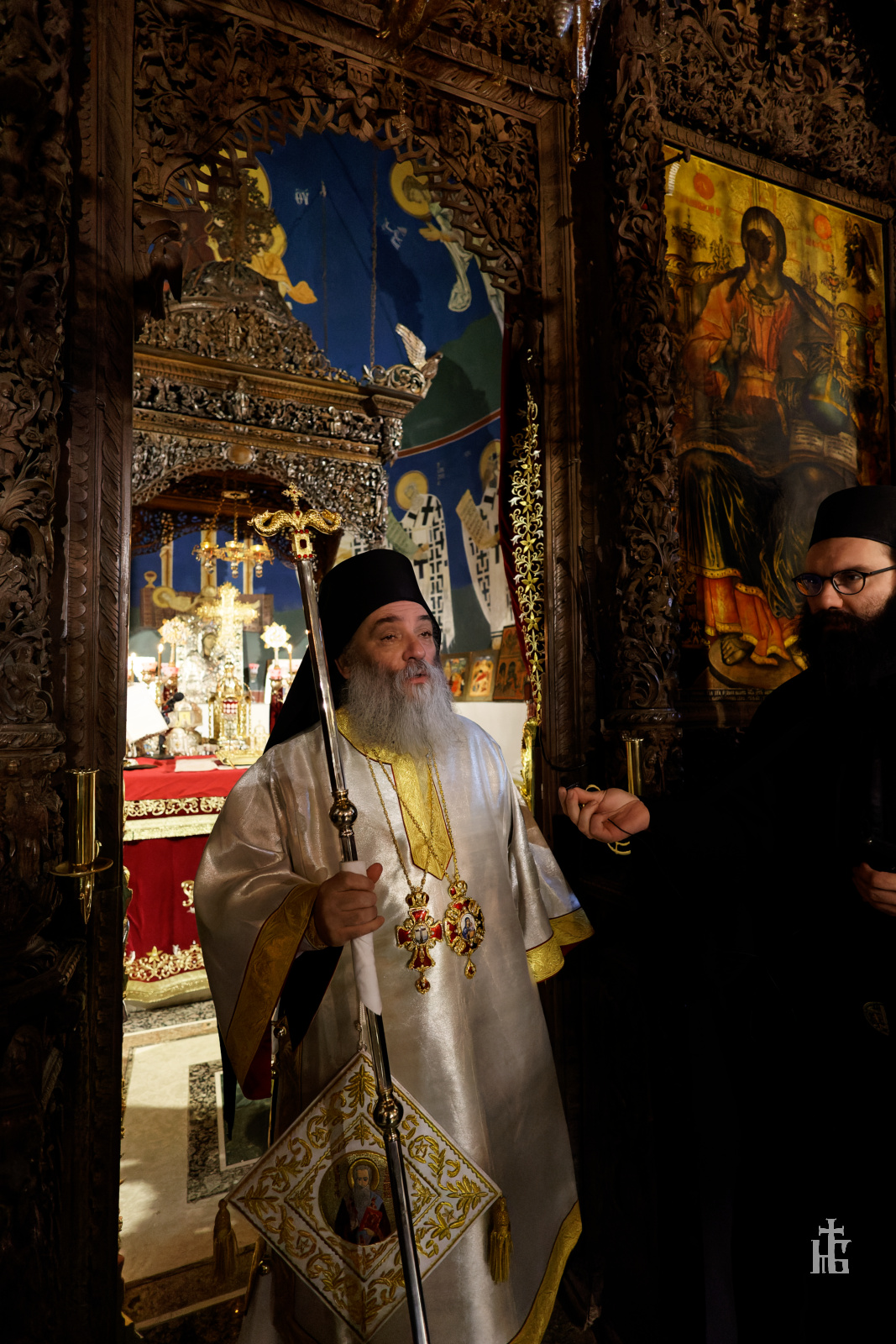
At the end of today’s Gospel reading, Christ asked the lawyer: “Which of these three do you think was neighbor to him who fell among the thieves?” Of course, the lawyer answered Him, “He who showed mercy on him” (Luke 10:36-37). You see, God in His wisdom led the lawyer to conclude that every person who does good is our neighbor. So, we must not despise any child of God in this world, regardless of their ethnicity or any other category by which we identify people. We should not have any kind of segregation or discrimination, but rather we should love everyone because every person is His child in the eyes of God and thus our brother or sister.
At the end of the Parable, the Lord said to the lawyer: “Go and do likewise.” God calls us to do good and to show mercy. How would you do that? Since Christ is the first one to perform mercy and goodness for us every day, pouring out His immeasurable grace on us, then if I am with Him, I will be grateful and will try to act as He does. He says in another place in the Gospels, “If I, then, your Lord and Teacher, have washed your feet, then you ought to wash one another’s feet. For I have given you an example, that you should do as I have done to you.” (John 13:14-15). God has done everything necessary for our salvation. Everyone will find their medicine in the Church. We just have to open our hearts, try to perform more works of mercy and goodness, and thus we too will find healing and our medicine will work. Go and do likewise, be a Christian in action, in practice, and not only in knowledge or theory. Now a favorable time is upon us for showing mercy: Nativity Fast. We will go to church, pray, and edify one other, which is all very good. The Church, which is everywhere all over the world, is the inn of our salvation. Thus we must try to do more good deeds in everyday life so that we will be efficacious as Christians. We can receive Christ and put Him in our hearts through good works. When we are filled with gratitude to Him Who gives us life, we become His true followers. He gave life to our forefather Adam and yet through him all humanity became deadened by sin. Christ is the new Adam, Who saves us and gives us life, Who does everything so that we might inherit eternal life. Let’s not forget that this is our goal, to gain eternal life in Christ Jesus. Let us live with Him in eternal joy, let us shine with Him at the table in the Kingdom of God. There we will not be fed with fleeting pleasures, but with that which is immeasurable and ineffable Divine.
May God grant us strength, so that we might be effective Christians. Let us pray that He would grant us all illumination, goodness, and joy so that we can pass this Fast, and then the Nativity of Christ, in peace, oneness of soul, and spiritual joy.
Amen.
